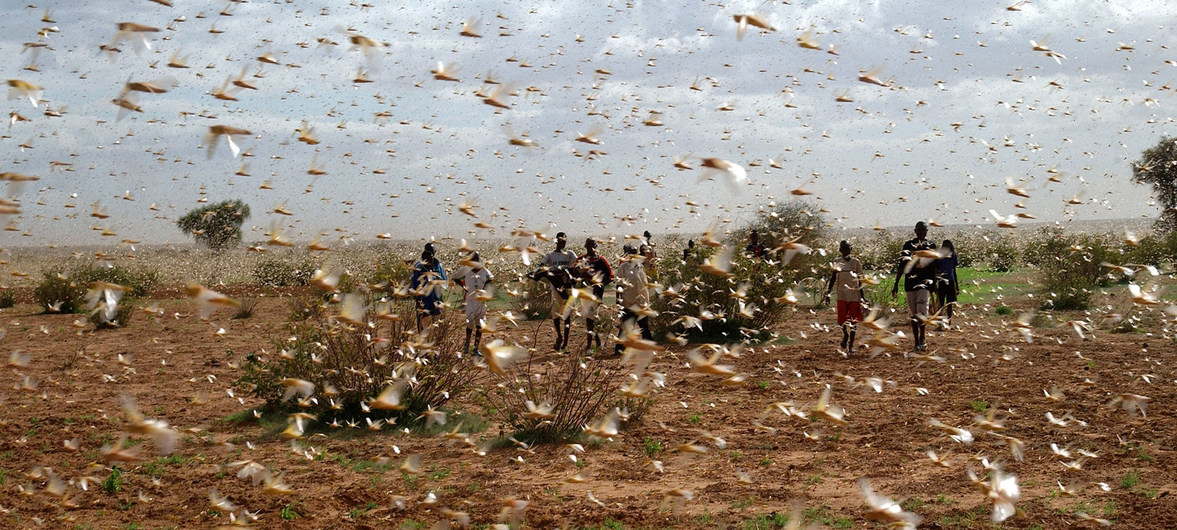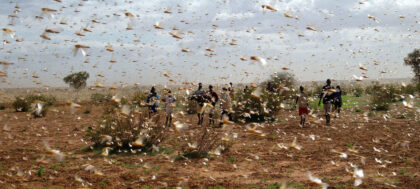
Scale of locust upsurge in Eastern Africa, ‘unprecedented in modern times’
 The scale of the locust upsurge prevailing in Eastern Africa is “unprecedented in modern times” and the scourge is “a graphic and shocking reminder” of the region’s vulnerability, said three UN agencies’ chiefs in a joint statement.
The scale of the locust upsurge prevailing in Eastern Africa is “unprecedented in modern times” and the scourge is “a graphic and shocking reminder” of the region’s vulnerability, said three UN agencies’ chiefs in a joint statement.
Qu Dongyu, Director-General of the Food and Agriculture Organization (FAO); Mark Lowcock, UN Emergency Relief Coordinator; and David Beasley, Executive Director of the World Food Program (WFP) pointed out in their joint statement “this is a scourge of biblical proportions.” “Yet as ancient as this scourge is, its scale today is unprecedented in modern times”.
As the locusts continue their invasion throughout eastern Africa, and more details emerge on the scale of need in affected areas, the cost of action has shot up to $138 million to support Governments in controlling the ravaging pests, especially over the next four months.
The money would fund activities to combat the locusts before new swarms emerge, provide help for people whose crops or pastures are already affected and protect families and their livelihoods.
The UN leaders maintained that action to control and contain the locusts before the new swarms take flight and farmers crops first break soil is “critical”.
At the same time, FAO needs additional resources to immediately begin boosting the resilience of affected communities so they can better withstand some inevitable shocks.
They welcomed the $33 million international donor response that has been received or committed, but noted that the funding gaps are clear, and needs are growing too rapidly.
“Acting now to avert a food crisis is a more humane, effective and cost-efficient approach than responding to the aftermath of disaster”, the statement underscored, urging the international community to act more decisively.
Since FAO launched its first appeal in January to help what was at the time three affected countries, the locust swarms have moved rapidly across vast distances and as of 12 February, have been sighted in Djibouti, Eritrea, South Sudan, Uganda and Tanzania. And each day, more countries are affected, the statement read, adding that just this week, one swarm reached the eastern boundaries of the Democratic Republic of the Congo – a country that has not seen a locust incursion since 1944.
